Human health, human rights, technology, sustainability, diversity, the future of our region and the legacies of war and slavery are issues that are front and center these days, in the media, in the courts, in Congress and closer to home, in the classrooms at Washington University in St. Louis. Several Assembly Series programs this fall will feature individuals — many WUSTL faculty — chosen for their thought leadership on these and other relevant subjects.
Created 60 years ago, the Assembly Series is Washington University’s premiere lecture series. Its chief mission is to present interesting and important voices, and it is designed to spark meaningful discussion and lead to greater understanding of our world today.
Assembly Series programs are free and open to the public. The fall 2013 schedule, below, opens with First Year Reading Program author Eula Biss on Sept. 9 and ends with feminist legal scholar Catharine MacKinnon on Nov. 14.
Because some information may change or be added at a later date, please check the website frequently for updates. Here, you also can subscribe to receive announcements and reminders.
FALL 2013 SCHEDULE
Monday, Sept. 9
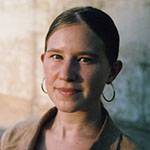
Bilal Mark McDowell Bomani
“NASA’s GreenLab Research Facility: A Potential Global Solution for Water, Food/Feed, Fuel and Energy.”
Chancellor’s Fellowship Lecture
11 a.m., Whitaker Hall Auditorium, Room 100
Bomani is the kind of research scientist whose low profile belies the significance of his work at NASA’s Glenn Research Center,where his team is creating biofuels that are sustainable, renewable and alternative. He uses the term “extreme green” to describe the objective: to develop the next generation of aviation fuels that do not use any of the Earth’s most precious resources – fresh water and arable land — but do use some of the safest and most plentiful products found in nature. (See Bomani’s TED talk: http://www.ted.com/speakers/bilal_bomani.html)
Panel Discussion: “STEM Research and Education”
Bomani will join a WUSTL panel composed of: Marcus Foston, PhD, assistant professor of energy, environmental and chemical engineering (School of Engineering); Jeff Catalano, PhD, associate professor of earth and planetary sciences and director of graduate studies; Brittni Jones, doctoral candidate in the Department of Education; and Kathryn Miller, PhD, chair and professor of biology; all in Arts & Sciences.
Wednesday, Sept. 25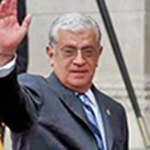
Alfredo Palacio
“Government and Health Care: Perspectives from a President and a Physician”
Global Health Week Lecture
5 p.m., Graham Chapel
During his years as minister of health, vice president and president of the Republic of Ecuador, Palacio’s reputation as a reformer was well-founded. He led many efforts to initiate economic and social advancements, especially in health care. The cardiologist (who trained at Washington University’s School of Medicine) is a strong advocate for universal medical coverage and is credited with beginning the modernization of health care in his country.
Palacio’s appearance is part of WUSTL’s Global Health Week, which runs Sept. 23-27 and includes an international fair as well as a host of activities, demonstrations and talks designed to educate and entertain the public on a broad range of health-care issues, including nutrition and cooking. (Visit the website for details.)
Monday, Sept. 30
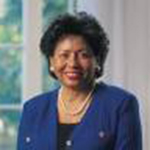
Brian Hall
“Embryos in Evolution and Evolving Embryos: An Historical Overview”
Thomas Hall Lecture
4 p.m., Umrath Lounge
For most of the 20th century, scientists attempting to understand how body structures change focused on either developmental biology or evolutionary biology. Then, during the 1970s, scientific trailblazers such as Hall, Stephen Jay Gould and Gunther Wagner began to merge the two concepts. It was in this new field called evolutionary developmental biology (evo-devo) where breakthroughs occurred in understanding how body structures change — and advance — through evolution. Hall’s research, predominantly in the area of the early vertebrate embryo known as the neural crest and its derived craniofacial skeleton, has led to a greater understanding of how cellular differentiation works.
Thursday, Oct. 10
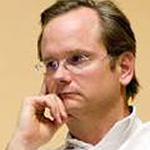
In her book, To Know Where He Lies: DNA Technology and the Search for Srebrenica’s Missing, anthropologist Wagner tells the story of the 1995 massacre in Srebrenica, when 8,000 Bosnian Muslims were killed and their bodies dumped into mass graves. Loved ones had little hope of identifying physical remains until the advent of DNA technology that resulted in more than 6,000 victims identified. Their remains are now interred in a memorial site that marks the worst atrocity in European history since World War II. (See a news update.)
Wednesday, Nov. 6
Panel Discussion: “The Future of the St. Louis Region”
Clayton Centennial Celebration
7 p.m., Simon Hall May Auditorium
The St. Louis region has much to offer, but what about its future — a future tied closely to Washington University’s? To celebrate the centennial anniversary of Clayton’s founding, experts will offer their thoughts on how our region will fare in the future. They include WUSTL provost Holden Thorp, PhD, who will address education, and plant conservationist Peter Raven, PhD, who will explore environmental sustainability. A third panelist to discuss medicine and health care will be announced on the Assembly Series website.
Thursday, Nov. 14
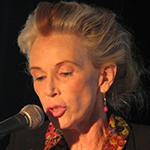
MacKinnon